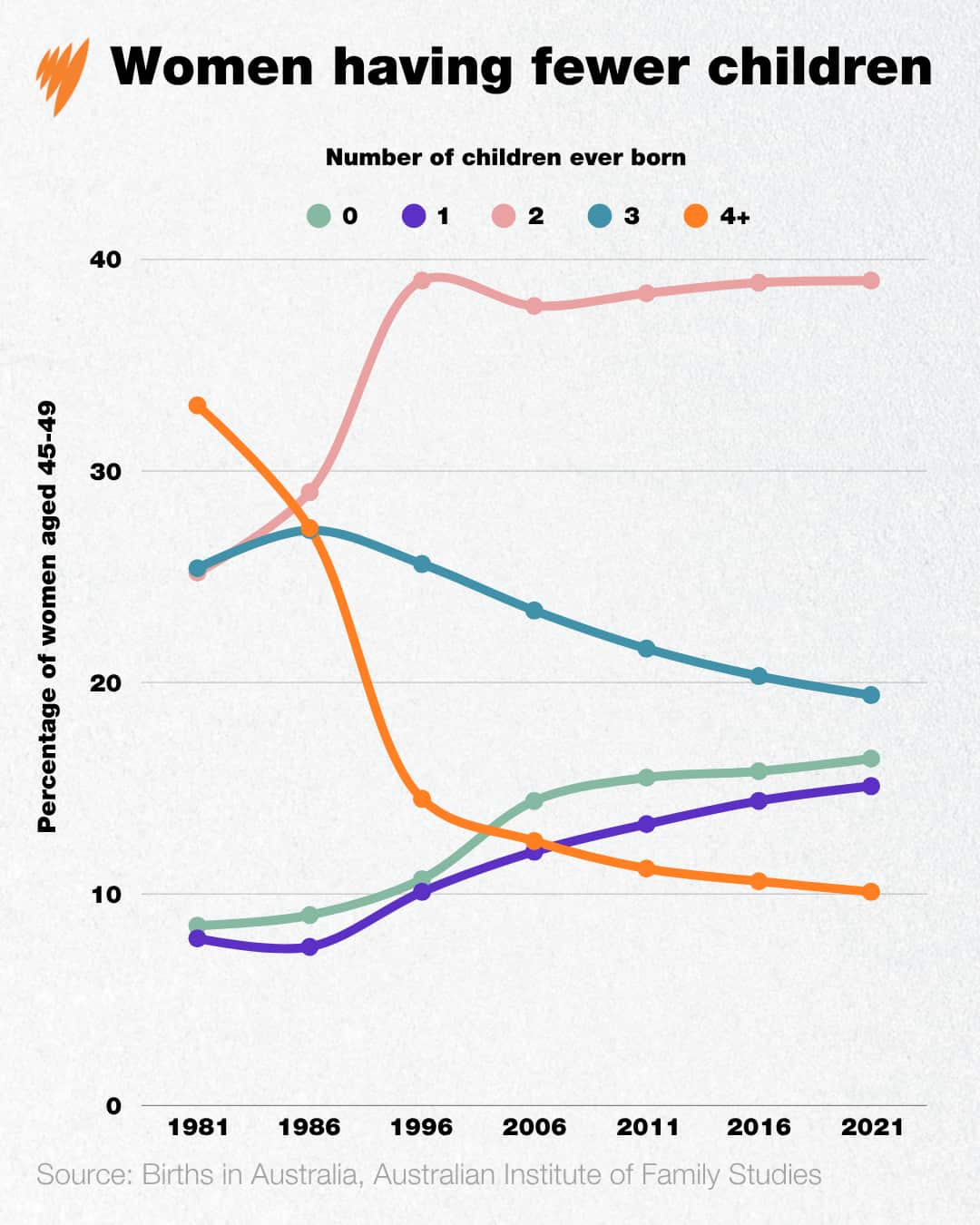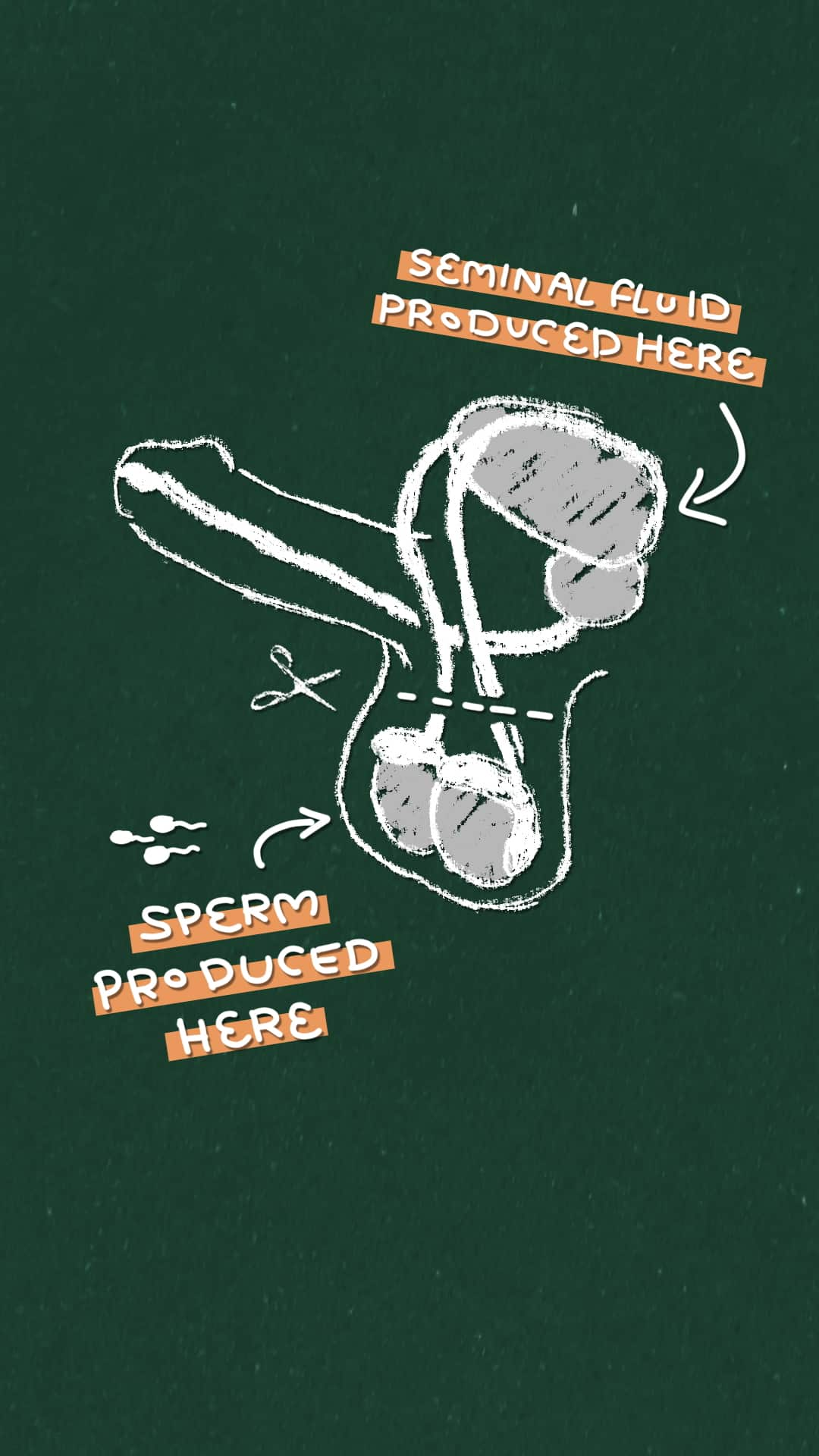When 34-year-old high school teacher Trent Crowe walked into a Sydney clinic for his vasectomy last March, he wasn’t nervous. He’d already made up his mind.
"Growing up, I thought I would have [kids] — not that I wanted them — it’s just what society kind of expects," Trent told The Feed.
But by his early 20s, Trent started to realise there might not be room for children in his life.
"The more I learned about what humans are doing to the environment, the more I thought: 'Well, that’s just adding more fuel to the fire.'"
And then there was the financial reality.
"Even with a decent income, I don’t know how I’d keep myself afloat, let alone a dependent," Trent said.
Around one in four Australian men over 40 have had a vasectomy — but Trent is among the younger men also choosing permanent contraception.
"Obviously there’s other forms of contraception out there, but a vasectomy is a guarantee more or less that there will be no kid."
About 15 per cent of Australian men have stated they didn’t want kids, up from 11 per cent in 2005, according to a 2025 Household, Income and Labour Dynamics in Australia (HILDA) survey report, which surveyed about 17,000 people.

As of June this year, there were 3.7 million couple families without children, according to the Australian Bureau of Statistics.
Shifting the contraceptive burden
Australia’s birthrate has been consistently falling since 1994, from 1.85 per woman to 1.48 per woman in 2024. Experts attribute this to delayed parenthood, smaller families, and a growing number of people choosing to remain child-free.
There's no public data available for the exact number of men who have had vasectomies, but Dr Benjamin Tang, who performs vasectomies at his Sydney practice, said he has noticed an uptick in men under 30 — "even under 25" — enquiring about the procedure.
And while the discussions around fertility often centre on women, Tang thinks a cultural shift is occurring.
"Traditionally, contraception was seen as a woman's responsibility. Now we're seeing a shift, with men stepping up and taking on that contraceptive burden," Tang told The Feed.
"It's still not a very significant percentage of men that actually go through and get a vasectomy done — but we definitely have a lot of inquiries from younger men under the age of 25."
What is a vasectomy?
A vasectomy is a surgery that involves cutting and sealing the vas deferens — the tubes that carry sperm — and is usually performed with local anaesthetic.
And with a 99.9 per cent success rate, the procedure is one of the most effective forms of contraception available and has no effect on testosterone levels.

Tang said the newer, "no-scalpel" vasectomy technique — a less invasive version of the procedure that uses a tiny puncture instead of an incision to reach the vas deferens — is quick and low-risk.
"It takes about 20 minutes under local anaesthetic," he said.

"Most men can drive themselves home and be back at work within a couple of days."
Vasectomies are a safe and reliable form of permanent contraception, however there’s a small risk of bleeding, infection or ongoing pain after the procedure, according to Healthdirect, Australia's national health advice service. It notes that rarely, the vas deferens can grow back together, which can lead to pregnancy.
While vasectomies can be reversed, fertility is not guaranteed to return.
Young men 'stepping up'
The increased interest in vasectomies from some younger men reflects a broader social shift, according to Liz Allen, a demographer from the Australian National University.
"Worldwide, we're seeing … men more open to the idea of permanent contraception," Allen said.
"It's partly driven by younger men stepping up so that women don’t have to shoulder the full burden of reproductive health."
Rising living costs, the climate crisis and shifting social norms are also playing a role in men choosing to be child-free, Allen said.
"Life is simply too difficult for many young people to start families," she said.
"Housing affordability, economic security and climate anxiety all weigh heavily. In that context, choosing to be child-free is increasingly seen as a rational — even responsible — choice."

For Trent, as his understanding of the world deepened, so too did his conviction to live child-free.
"It seems like a lot of the older generation who do have kids … just say offhand: 'Oh, God, if I was your age now, I wouldn't bother. Or I certainly wouldn't do it now in the current climate situation.'"
Breaking the stigma of being child-free
Trent has found the reactions to his decision were mostly supportive, but is aware of the ongoing stigma around being child-free
"Apart from a handful of friends who kind of project what they want onto me, no one really cares. My parents don't seem particularly bothered that they won’t necessarily get grandchildren from me," he said.
But he believes for women, it's still a different story.
"I don't know a single child-free woman that hasn't been absolutely hassled [for being child-free]," Trent said.
"It's like this antiquated idea that women are for nothing more than carrying a child — and that needs to change."
In 1981, about 8.5 per cent of women aged 45-49 hadn’t had kids. By 2021, that number had nearly doubled, with 16.5 per cent of women in that age group child-free, according to the Australian Institute of Family Studies.
Allen said that while child-free choices are becoming more normalised, there's still some societal judgement directed toward women.
"Women are still being questioned as being selfish, as being hedonistic. 'Why can’t you just lie back and think of the country as you go forth and procreate?' That’s just not the reality here," Allen said.
Shifting responsibility
Since the vasectomy, Trent's views on what it means to be a man have evolved: he no longer ties it to being a father and believes men in his generation have vastly different views on masculinity and family compared to his parents' generation.
"I did not grow up thinking that my purpose was to be a father … I never really thought about fatherhood in any meaningful way," Trent said.
"I think masculinity is whatever you want it to be."
And Allen said men taking responsibility for contraceptives is a positive step towards equality.
"We are seeing fellows really step up here … in a way that means that women don't have to shoulder the full burden of reproductive health, especially when it comes to contraception," Allen said.
"Social norms are shifting. Men are saying: 'I want to help share that burden,' especially in these committed relationships."
Beyond a new sense of masculinity, having a vasectomy ultimately gave Trent a sense of control and clarity.
"People are realising having a child or not is your choice, and I think more men are starting to understand that responsibility doesn't always mean fatherhood."
Through award winning storytelling, The Feed continues to break new ground with its compelling mix of current affairs, comedy, profiles and investigations. See Different. Know Better. Laugh Harder. Read more about The Feed
Have a story or comment? Contact Us


